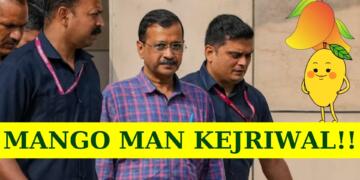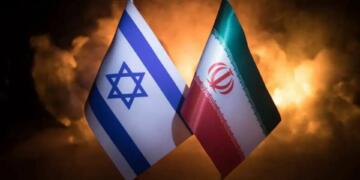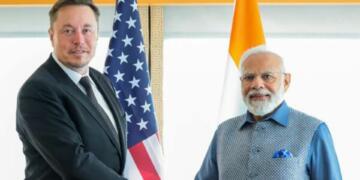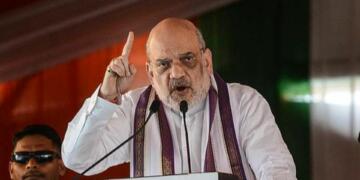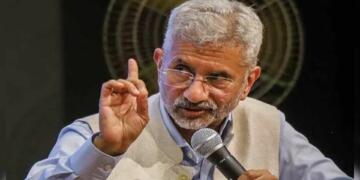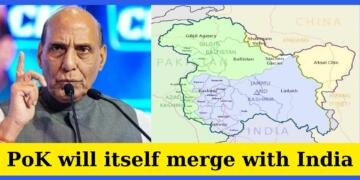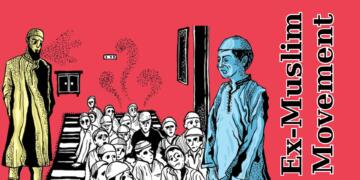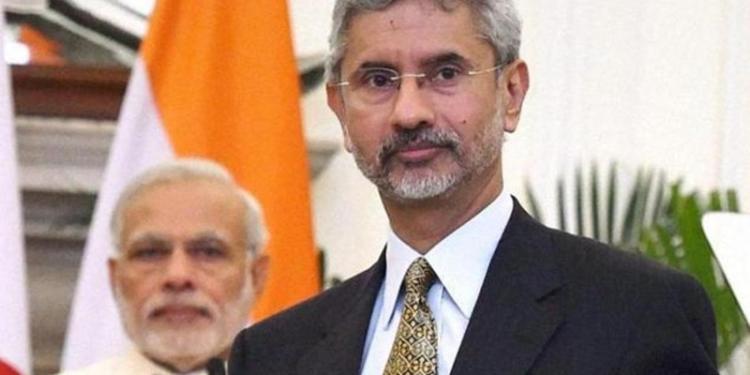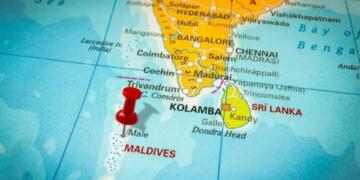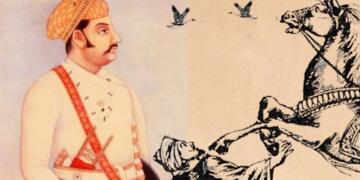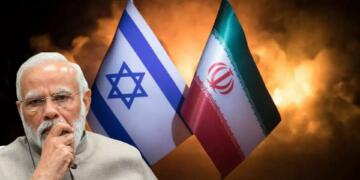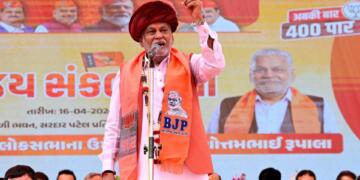Of the political forces at play, perhaps the only rival to the depth and width of popular domestic support that swept Modi 2.0 administration to power, is the scope and scale of international challenges that India is faced with. The world is seeing the far-reaching transformation of the global order. This is perhaps the greatest degree of change since the second world war, with the entire high table seeing a shuffle that only last happened post the war. These developments bring with them great uncertainties and therefore the risks and opportunities that are associated with remaking of the status quo. To have a very quick summary, we have a globe under a full-blown trade war, with an aggressive US president trying to reframe the global trade under a new international system, where unilateral actions by US are shaping its one-to-one relationship with various countries instead of a multilateral structure of the old. China continues to flex its muscles, with the pretense of peaceful rise almost discarded till the trade war hit it in the midriff. While a little subdued compared to a few years ago, China still continues to push for an unreasonable measure of hegemony and control outside its legal borders and agreed upon accords. The Saudi-Iran conflict does not show any signs of receding, despite the loss of Saudi faction in the Syrian war. In fact, the losses in Syria seem to have irritated the Sunni countries to an extent that the friction is now overtly spilling over to the Persian Gulf region. War in the Gulf in near term is a very real possibility. Europe continues to reel from one strategic disaster to another, with it trying to revive the Russian bug bear as a means of distracting the population from the real mistakes done by its leaders and politicians at home. This, in turn, is further isolating Russia and making its stances harder on various forums, with Russia now seeking to chart courses independently. In response to the troubled times, Japan and Australia have chosen to continue with strong nationalist governments who are not as predisposed to kow-tow to China as its more left-wing parties. The global Jihadi menace too shows no signs of abating.
This churn and focus on unilateralism, as opposed to multilateralism, and unchecked rise of China put India in a position where it is concurrently pushed by very different forces from all directions. War in the Gulf will not only endanger our energy security but also force us to choose between Iran and US-Saudi alliance. That position we would be reluctant to take as we need to have good working relationships with both and do not have a dog in the fight. A conflict in the gulf is the last thing India needs now. Similarly, the trade was between the US and China is now spinning uncontrollably out of control, leading to loss of global trade agreements which we were hoping to use to our benefit. In addition, as the US hardens its stance, its trade relationships with other countries, including China are now being hit. There are already increasing trade and non-trade barriers against India specific trade imports for US in addition to the Chinese unfair trade practices. These and other such mutually opposing factors will be testing the Indian government in the foreseeable future.
The good news is that it is also amply clear that the Modi government has a keen appreciation of the emergent scenario, and it has been quick on its feet, plunging headlong into addressing many of these issues. Hardly had the ink dried on the signatures made during the oath taking ceremony, and the PM was attending the very crucial SCO summit at Kyrgyzstan capital Bishkek. Following which we have the India visit of US Secretary of State Mike Pompeo pretty much as soon as he returned. These high profile events are supported by many less glamourous, but as crucial visits by EAM Subrahmanyam Jaishankar at a number of global forums. This already gives us a few indications of the approach that India may take in near to medium future, however, as international events typically carry a high volume of coverage, but the real negotiations stay in the background, we would also need to examine the data available to us closely to analyze what the government is planning to do. In addition, it is important to note that the contours are still developing, and it is not that all answers are on the table yet. Coming up with potential solutions for the government of India is a thought experiment that the Indian strategic community must also actively do.
As we examine the previous problem statements, there is a critical and important aspect to be actively kept at the very top of the mind. It is to constantly remember what are the imperatives of Indian foreign policy. This is especially important as the daily firefighting the divergent international pressures often lead to focus on transient issues with bigger picture seeing a neglect. Let us examine what India wants of the world along some of the key strategic dimensions.
Looking at the economic aspect of Indian interests, an unchanged need has been of continuous access to affordable energy. While we have made progress in diversifying our energy supply basket and create indigenous supply, the steps taken by the British imperialists to isolate India from global energy flows through partition etc. has not fully been resolved. The fastest growing economy in the world has a hunger for power, including petrochemicals and any misstep would cripple India’s economy. The 91 financial crisis was brought in equal measure by the first gulf war as it was due to fiscal mismanagement of Congress governments in the 80s. It is not important for us whether the sourcing is done from the West Asian regions, Russian gas, or American fracked hydrocarbons, as long as it meets the criteria of it being cheap, plentifully available and secure from disruptions. A related aspect to the free flow of oil is the free flow of people and goods. As has been often said, and PM Modi often stressed in his first term, India’s biggest resource is its people. At a certain level, they are our biggest export too. It is critical that there be no barriers for Indian goods and people to freely move into and move out of international markets where ever they may be. Any discriminatory policies, whether as a tariff or non-traffic barriers or geographic exclusion zones would be completely unacceptable. The movement of people also carries with it ownership of the business, an Indian owned business entity must get the same fair treatment and not singled out as currently being done in many quarters.
The economic system that we foresee centered around people, needs an enabling environment not only at an economic level but also at a cultural level. As the success and failure of organizations and corporations are driven by how engaged people are with it, the commercial system at larger scales too need to address what are called soft issues. This culture comes in the form of a transparent set of rules, fair, equitable irrespective of country of origin, and enforced. In the Indian context, we would call this an order of dharma and not mercantile laissez-faire which has come to characterize a lot of global financial transactions. Again, the PM even in his first term talked of India being the Vishwa guru whenever he talked of the path ahead, and this closely ties in with nurturing climate needed. India needs to be able to export not only people and goods, but its philosophy, that being the soft power which will, in turn, shape the culture. A continued focus for India would be to take its ancient traditions, stories and revive and establish them across the entire Asian landmass as before, and now to take it even further.
This then dovetails neatly into the next dimension, security. The need for national security is of course well evident, protecting the country and its people is a foundational aspect of any civilization. The fact that the most serious threats to India’s security are from outside its borders is also well understood and a key part of international relationships is to manage relationships that ensure the physical security of the homeland. In the current context, however, merely that is not sufficient. India’s security concerns are not merely of immediate physical protection of here and now, which was more the case 50 years ago. Today, when we speak of security, it encompasses an area secure environment which protects India’s cultural and economic interests at home and abroad. It implies being able to enforce punishments for deviation from common cultural compact. It includes being able to dissolve any trade blocking geographical exclusion zones. It is the defense of the multilateral framework in application and ensuring countries do not renege on their promises. This would mean putting up a robust physical counter to terrorism and cultural counters to its underlying ideology not only within the country but also outside. In terms of examples, this would mean international waters safe from non-state elements such as piracy, as well as freedom of navigation on internationally recognized trade routes such as the South China Sea. It would mean protection of assets like the Chabahar port and securing the link from India to Afghanistan open through both Iran as well as the air route over Pakistan. It would mean ensuring that friendly countries like Sri Lanka are not forced into giving up territory to other countries through hostile economic means. This would mean supporting democracy in Afghanistan against Wahhabi forces. This would mean taking on entities like the Islamic state. These steps, need both physical force projection and strong coercive diplomacy to achieve this. In a sense, security is a foundation which the Indian international interest architecture is built on and is now a much larger and an all-encompassing concept.
As mentioned before, reminding ourselves of the long term goals is important to not let the mighty river of civilization dissipate into a swamp of numerous broken up channels while facing rocks of everyday transactional issues. There is also more prosaic reason, as we see from the elucidation of challenges, we face optimization of a multivariate equation with the growth of some its factors only possible at the cost of loss of some others. The balancing of this equation is a constant tightrope walk, and as we know, when walking the tightrope we focus straight ahead. The big picture provides the horizon against which the trade-offs can be done to maintain the equilibrium. In a more prosaic term, one option to diffuse US trade pressure would be to throw in our lot with BRI initiative from China as a counterweight, so should we do that? The grand design of Indian interests would then provide an answer, in this case support of BRI goes against some of the key tenets of security structure we want, and hence that would not be an acceptable tactic. The continuous evaluation of tactics is only possible if we have a strategy to evaluate their efficacy against.
Let us now go back to recent efforts of the Indian government and how they stack up against our discussion above. At Bishkek and at Dushanbe, there were two common themes, one was of course terrorism. Both the PM at Bishkek and EAM at the CICA summit called out terror as being the “gravest threat” to the people of Asia and the world. The second was the focus on multilateral mechanism. The following statement by EAM Jaishankar is quite illustrative of the same “The India-Central Asia 5 dialogue format is big positive for cooperation and stability across regions. India’s vision of the Indo-Pacific is rooted in SAGAR (Security and Growth for All in the Region) and in sync with CICA’s goals”. Similarly, Modi had called out India’s commitment to International North South Transport Corridor (INSTC) and the Ashgabat Agreement, again underscoring India’s involvement in multilateral efforts. There is yet another factoid which is crucial. For the first time in its history perhaps, India voted in favor of Israel and against Palestine in a UN resolution, as opposed to its usual middle path approach between the two. This is quite notable because quite recently, it had voted against Israel where the resolution could have set a template for external intervention in nation’s domestic issue.
In themselves, these examples may appear to be minor, and a part of the usual noises made as part of diplomatic posturing done on such occasions, however, there are grounds to believe that these examples illustrate few aspects of Indian foreign policy. One can find other examples too, once we know what pattern are we looking for.
The first aspect of Indian balancing act is its newfound flexibility, India will now be no longer non-aligned, but will not opt for a blanket alignment either. It will opt for an issue based alignment with the willingness to take decisions on a case by case basis and not an ideological term. It will, therefore, vote for and against Israel depending on the resolution on table, and what are the repercussions of the same from an Indian perspective. This litheness would allow India to navigate through global landmines and not get into fixed positions which are hard to move out of.
The other facet that emerges is India seeks to engage the world in many multilateral forums. India is working with any given major country at any point of time through multiple forums including one to one interactions. In doing so, India is creating a interlocking matrix of communication, where participating countries can be approached from various different sides, thus say allowing India a path to engage China on a trade issue and make progress while a border negotiation agreement in a direct format may not be proceeding as well. We may see an interesting possibility of India and China having friendly dialogue on topics, while India support US on South China Sea issue. Yet another brilliant example of this was when Indian ships participated along with US and other Navies on a freedom of navigation exercises in South China sea, but only after having the same ships also attend Qingdao fleet review. The many multi-lateral approaches also ensures that every country can be engaged multiple times deepening the extent of relationship with them. Lastly, such a arrangement provides for agreements to be witnessed and bought in by multiple countries, making later unilateral moves for the participating member states harder.
The final piece of solving the puzzle of fractious affairs appears to be Indian effort to create overarching unifying themes which are of importance to everyone and focus on which could transcend the petty squabbling, allowing for pesky differences to be pushed to the background, at least for a bit. The example used above had terrorist danger playing the role of unifying concerns. Today, it is impossible for most nations to want growth of Islamic fundamentalism, including those who had been dismissive of the problem before. The PM and EAM used Afghanistan’s stability as a reminder that an unstable Afghanistan in the region was not good for anyone’s health, neither Iran, nor CAR and not China in the least. While this is one case in point, similar such larger concerns would be need to be identified and pushed to the forefront allowing for co-operation. Given the multiple multi-lateral approach, India can tailor a issue for each of the groupings it participate in.
While the times to come are likely to be the most challenging global scenario of the latest Indian state’s history since its formation in 1947, but given the tactics described above, while remaining unflinching to larger Indian interests, a real politic based artfulness can see us chart our course successfully through these times.


















